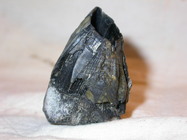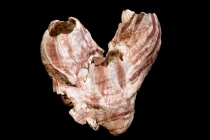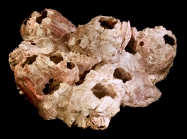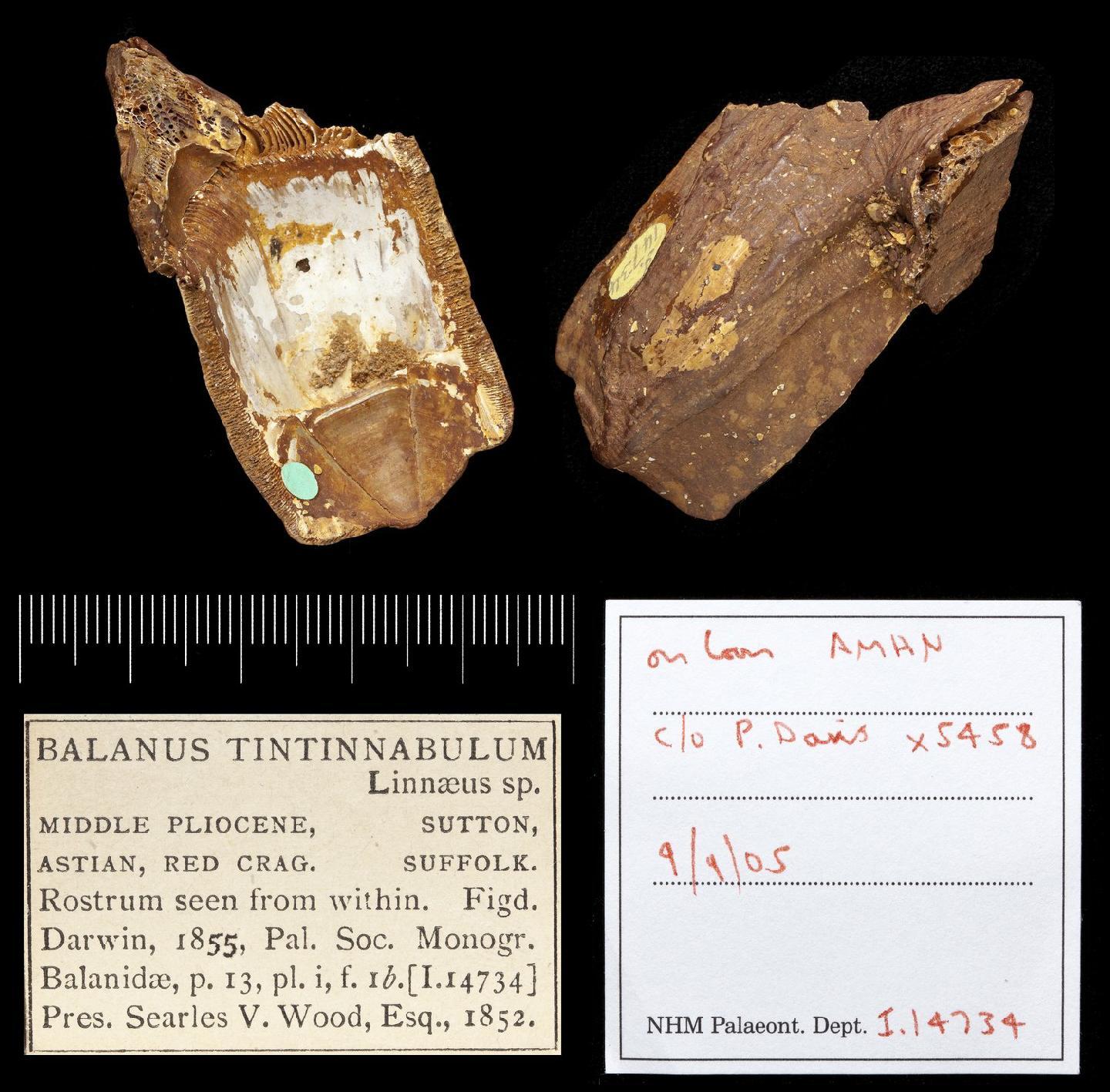WoRMS taxon details
Megabalanus tintinnabulum (Linnaeus, 1758)
Balanus tintinnabulum (Linnaeus, 1758) · unaccepted (Synonym)
Lepas tintinnabulum Linnaeus, 1758 · unaccepted
marine
Linnaeus, C. (1758). Systema Naturae per regna tria naturae, secundum classes, ordines, genera, species, cum characteribus, differentiis, synonymis, locis. <em>Editio decima, reformata [10th revised edition], vol. 1: 824 pp. Laurentius Salvius: Holmiae.</em> , available online at https://biodiversitylibrary.org/page/726886 [details] Available for editors  [request]
[request]
Distribution This is a cosmopolitan species in warm seas. According to Newman & Ross (1978), its distribution is mainly natural.
Distribution This is a cosmopolitan species in warm seas. According to Newman & Ross (1978), its distribution is mainly natural. [details]
WoRMS (2024). Megabalanus tintinnabulum (Linnaeus, 1758). Accessed at: https://www.marinespecies.org/aphia.php?p=taxdetails&id=106225 on 2024-11-21
Date
action
by
![]() The webpage text is licensed under a Creative Commons Attribution 4.0 License
The webpage text is licensed under a Creative Commons Attribution 4.0 License
original description
Linnaeus, C. (1758). Systema Naturae per regna tria naturae, secundum classes, ordines, genera, species, cum characteribus, differentiis, synonymis, locis. <em>Editio decima, reformata [10th revised edition], vol. 1: 824 pp. Laurentius Salvius: Holmiae.</em> , available online at https://biodiversitylibrary.org/page/726886 [details] Available for editors  [request]
[request]
context source (HKRMS) Leung TY. & Jones DS. (2000). Barnacles (Cirripedia: Thoracica) from epibenthic substrata in the shallow offshore waters of Hong Kong. In: Morton B, editor. Proceedings of the Tenth International Marine Biological Workshop: The Marine Flora and Fauna of Hong Kong and Southern China. The marine flora and fauna of Hong Kong and southern China V. Hong Kong University Press, Hong Kong. pp 105-127. [details]
context source (Schelde) (2010). Bedreiging voor biodiversiteit. Indicatoren voor het Schelde-estuarium. <em>Opgemaakt in opdracht van Afdeling Maritieme Toegang, projectgroep EcoWaMorSe, Vlaams Nederlandse Scheldecommissie. VLIZ Information Sheets, 200. Vlaams Instituut voor de Zee (VLIZ): Oostende.</em> 7 pp. (look up in IMIS) [details]
basis of record Southward, A.J. (2001). Cirripedia - non-parasitic Thoracica, <B><I>in</I></B>: Costello, M.J. <i>et al.</i> (Ed.) (2001). <i>European register of marine species: a check-list of the marine species in Europe and a bibliography of guides to their identification. Collection Patrimoines Naturels,</i> 50: pp. 280-283 (look up in IMIS) [details]
additional source Muller, Y. (2004). Faune et flore du littoral du Nord, du Pas-de-Calais et de la Belgique: inventaire. [Coastal fauna and flora of the Nord, Pas-de-Calais and Belgium: inventory]. <em>Commission Régionale de Biologie Région Nord Pas-de-Calais: France.</em> 307 pp., available online at http://www.vliz.be/imisdocs/publications/145561.pdf [details]
additional source Streftaris, N., A. Zenetos & E. Papathanassiou. (2005). Globalisation in marine ecosystems: the story of non-indigenous marine species across European seas. <em>Oceanogry and Marine Biology: an Annual Review.</em> 43: 419-453. (look up in IMIS) [details] Available for editors [request]
[request]
additional source Zenetos, A.; Çinar, M.E.; Pancucci-Papadopoulou, M.A.; Harmelin, J.-G.; Furnari, G.; Andaloro, F.; Bellou, N.; Streftaris, N.; Zibrowius, H. (2005). Annotated list of marine alien species in the Mediterranean with records of the worst invasive species. <em>Mediterranean Marine Science.</em> 6 (2): 63-118., available online at https://www.researchgate.net/publication/273213810_Annotated_list_of_marine_alien_species_in_the_Mediterranean_with_records_of_the_worst_invasive_species [details] Available for editors [request]
[request]
additional source Gittings, S. R. 2009. Cirripedia (Crustacea) of the Gulf of Mexico, Pp. 827–836 in Felder, D.L. and D.K. Camp (eds.), Gulf of Mexico–Origins, Waters, and Biota. Biodiversity. Texas A&M Press, College Station, Texas. [details]
additional source Liu, J.Y. [Ruiyu] (ed.). (2008). Checklist of marine biota of China seas. <em>China Science Press.</em> 1267 pp. (look up in IMIS) [details] Available for editors [request]
[request]
additional source Zenetos, A.; Gofas, S.; Verlaque, M.; Cinar, M.; Garcia Raso, J.; Bianchi, C.; Morri, C.; Azzurro, E.; Bilecenoglu, M.; Froglia, C.; Siokou, I.; Violanti, D.; Sfriso, A.; San Martin, G.; Giangrande, A.; Katagan, T.; Ballesteros, E.; Ramos-Espla, A.; Mastrototaro, F.; Ocana, O.; Zingone, A.; Gambi, M.; Streftaris, N. (2010). Alien species in the Mediterranean Sea by 2010. A contribution to the application of European Union's Marine Strategy Framework Directive (MSFD). Part I. Spatial distribution. <em>Mediterranean Marine Science.</em> 11(2): 381-493., available online at https://doi.org/10.12681/mms.87 [details]
additional source Kerckhof, F. (2002). Barnacles (Cirripedia, Balanomorpha) in Belgian waters, an overview of the species and recent evolutions, with emphasis on exotic species. <em>Bull. Kon. Belg. Inst. Natuurwet. Biologie.</em> 72 (Suppl.):: 93-104. (look up in IMIS) [details]
context source (HKRMS) Leung TY. & Jones DS. (2000). Barnacles (Cirripedia: Thoracica) from epibenthic substrata in the shallow offshore waters of Hong Kong. In: Morton B, editor. Proceedings of the Tenth International Marine Biological Workshop: The Marine Flora and Fauna of Hong Kong and Southern China. The marine flora and fauna of Hong Kong and southern China V. Hong Kong University Press, Hong Kong. pp 105-127. [details]
context source (Schelde) (2010). Bedreiging voor biodiversiteit. Indicatoren voor het Schelde-estuarium. <em>Opgemaakt in opdracht van Afdeling Maritieme Toegang, projectgroep EcoWaMorSe, Vlaams Nederlandse Scheldecommissie. VLIZ Information Sheets, 200. Vlaams Instituut voor de Zee (VLIZ): Oostende.</em> 7 pp. (look up in IMIS) [details]
basis of record Southward, A.J. (2001). Cirripedia - non-parasitic Thoracica, <B><I>in</I></B>: Costello, M.J. <i>et al.</i> (Ed.) (2001). <i>European register of marine species: a check-list of the marine species in Europe and a bibliography of guides to their identification. Collection Patrimoines Naturels,</i> 50: pp. 280-283 (look up in IMIS) [details]
additional source Muller, Y. (2004). Faune et flore du littoral du Nord, du Pas-de-Calais et de la Belgique: inventaire. [Coastal fauna and flora of the Nord, Pas-de-Calais and Belgium: inventory]. <em>Commission Régionale de Biologie Région Nord Pas-de-Calais: France.</em> 307 pp., available online at http://www.vliz.be/imisdocs/publications/145561.pdf [details]
additional source Streftaris, N., A. Zenetos & E. Papathanassiou. (2005). Globalisation in marine ecosystems: the story of non-indigenous marine species across European seas. <em>Oceanogry and Marine Biology: an Annual Review.</em> 43: 419-453. (look up in IMIS) [details] Available for editors
additional source Zenetos, A.; Çinar, M.E.; Pancucci-Papadopoulou, M.A.; Harmelin, J.-G.; Furnari, G.; Andaloro, F.; Bellou, N.; Streftaris, N.; Zibrowius, H. (2005). Annotated list of marine alien species in the Mediterranean with records of the worst invasive species. <em>Mediterranean Marine Science.</em> 6 (2): 63-118., available online at https://www.researchgate.net/publication/273213810_Annotated_list_of_marine_alien_species_in_the_Mediterranean_with_records_of_the_worst_invasive_species [details] Available for editors
additional source Gittings, S. R. 2009. Cirripedia (Crustacea) of the Gulf of Mexico, Pp. 827–836 in Felder, D.L. and D.K. Camp (eds.), Gulf of Mexico–Origins, Waters, and Biota. Biodiversity. Texas A&M Press, College Station, Texas. [details]
additional source Liu, J.Y. [Ruiyu] (ed.). (2008). Checklist of marine biota of China seas. <em>China Science Press.</em> 1267 pp. (look up in IMIS) [details] Available for editors
additional source Zenetos, A.; Gofas, S.; Verlaque, M.; Cinar, M.; Garcia Raso, J.; Bianchi, C.; Morri, C.; Azzurro, E.; Bilecenoglu, M.; Froglia, C.; Siokou, I.; Violanti, D.; Sfriso, A.; San Martin, G.; Giangrande, A.; Katagan, T.; Ballesteros, E.; Ramos-Espla, A.; Mastrototaro, F.; Ocana, O.; Zingone, A.; Gambi, M.; Streftaris, N. (2010). Alien species in the Mediterranean Sea by 2010. A contribution to the application of European Union's Marine Strategy Framework Directive (MSFD). Part I. Spatial distribution. <em>Mediterranean Marine Science.</em> 11(2): 381-493., available online at https://doi.org/10.12681/mms.87 [details]
additional source Kerckhof, F. (2002). Barnacles (Cirripedia, Balanomorpha) in Belgian waters, an overview of the species and recent evolutions, with emphasis on exotic species. <em>Bull. Kon. Belg. Inst. Natuurwet. Biologie.</em> 72 (Suppl.):: 93-104. (look up in IMIS) [details]
 Present
Present  Present in aphia/obis/gbif/idigbio
Present in aphia/obis/gbif/idigbio  Inaccurate
Inaccurate  Introduced: alien
Introduced: alien  Containing type locality
Containing type locality
From regional or thematic species database
Introduced species vector dispersal Croatian part of the Adriatic Sea (Marine Region) Ships: general [details]Introduced species vector dispersal in Belgian part of the North Sea: Ships: accidental with ballast water, sea water systems, live wells or other deck basins [details]
Introduced species vector dispersal in Belgian part of the North Sea: Ships: accidental as attached or free-living fouling organisms [details]
Unreviewed
Alien species The barnacle Megabalanus tintinnabulum was naturally only found in tropical waters. Its exact place of origin is unknown, although some suggest the western coast of Africa and the Indo-Pacific region. The species was already observed in the Netherlands in 1764, on ship’s hulls. Populations of this species were discovered on buoys along the Belgian coast in 1998. The barnacle is part of the fouling community of ship’s hulls and other hard substrates. As a result of its big size, this barnacle competes with indigenous barnacles. [details]Distribution This is a cosmopolitan species in warm seas. According to Newman & Ross (1978), its distribution is mainly natural. [details]
| Language | Name | |
|---|---|---|
| Dutch | zeetulp | [details] |
To Barcode of Life (16 barcodes)
To Biodiversity Heritage Library (208 publications) (from synonym Balanus tintinnabulum (Linnaeus, 1758))
To Biodiversity Heritage Library (8 publications)
To European Nucleotide Archive, ENA (Megabalanus tintinnabulum)
To GenBank (23 nucleotides; 51 proteins)
To Global Biotic Interactions (GloBI)
To Information system on Aquatic Non-Indigenous and Cryptogenic Species (AquaNIS)
To MNHN Fossil collection (Balanus tintinnabulum (LINNAEUS, 1758); F.R03658) (from synonym Balanus tintinnabulum (Linnaeus, 1758))
To NHMUK collection (Balanus tintinnabulum (Linnaeus, 1758); NHMUK:ecatalogue:2721182) (from synonym Balanus tintinnabulum (Linnaeus, 1758))
To Niet-inheemse soorten Belgisch deel Noordzee en aanpalende estuaria (in Dutch)
To PESI
To PESI (from synonym Balanus tintinnabulum (Linnaeus, 1758))
To USNM Invertebrate Zoology Arthropoda Collection (3 records)
To USNM Invertebrate Zoology Arthropoda Collection (62 records) (from synonym Balanus tintinnabulum (Linnaeus, 1758))
To Yale Peabody Museum of Natural History (YPM IZ 034914)
To ITIS
To Biodiversity Heritage Library (208 publications) (from synonym Balanus tintinnabulum (Linnaeus, 1758))
To Biodiversity Heritage Library (8 publications)
To European Nucleotide Archive, ENA (Megabalanus tintinnabulum)
To GenBank (23 nucleotides; 51 proteins)
To Global Biotic Interactions (GloBI)
To Information system on Aquatic Non-Indigenous and Cryptogenic Species (AquaNIS)
To MNHN Fossil collection (Balanus tintinnabulum (LINNAEUS, 1758); F.R03658) (from synonym Balanus tintinnabulum (Linnaeus, 1758))
To NHMUK collection (Balanus tintinnabulum (Linnaeus, 1758); NHMUK:ecatalogue:2721182) (from synonym Balanus tintinnabulum (Linnaeus, 1758))
To Niet-inheemse soorten Belgisch deel Noordzee en aanpalende estuaria (in Dutch)
To PESI
To PESI (from synonym Balanus tintinnabulum (Linnaeus, 1758))
To USNM Invertebrate Zoology Arthropoda Collection (3 records)
To USNM Invertebrate Zoology Arthropoda Collection (62 records) (from synonym Balanus tintinnabulum (Linnaeus, 1758))
To Yale Peabody Museum of Natural History (YPM IZ 034914)
To ITIS






